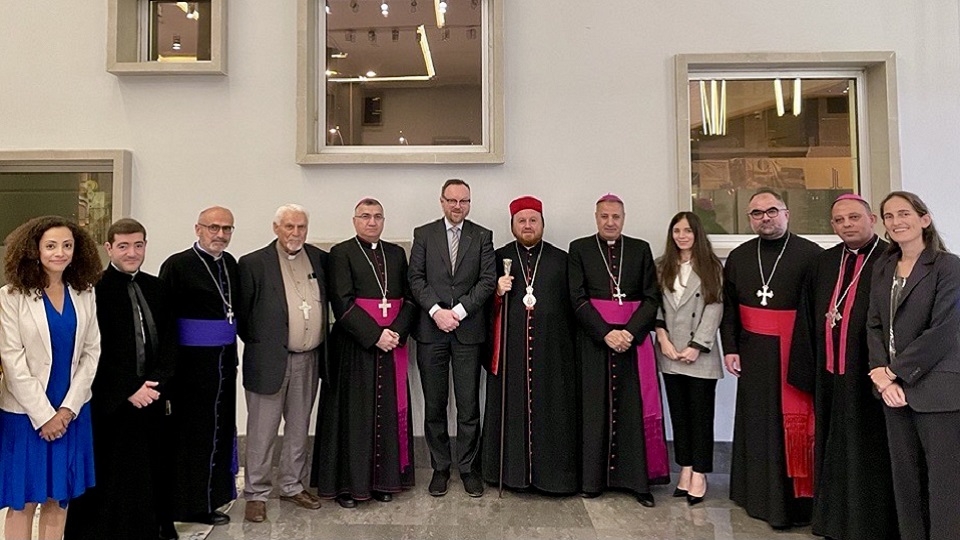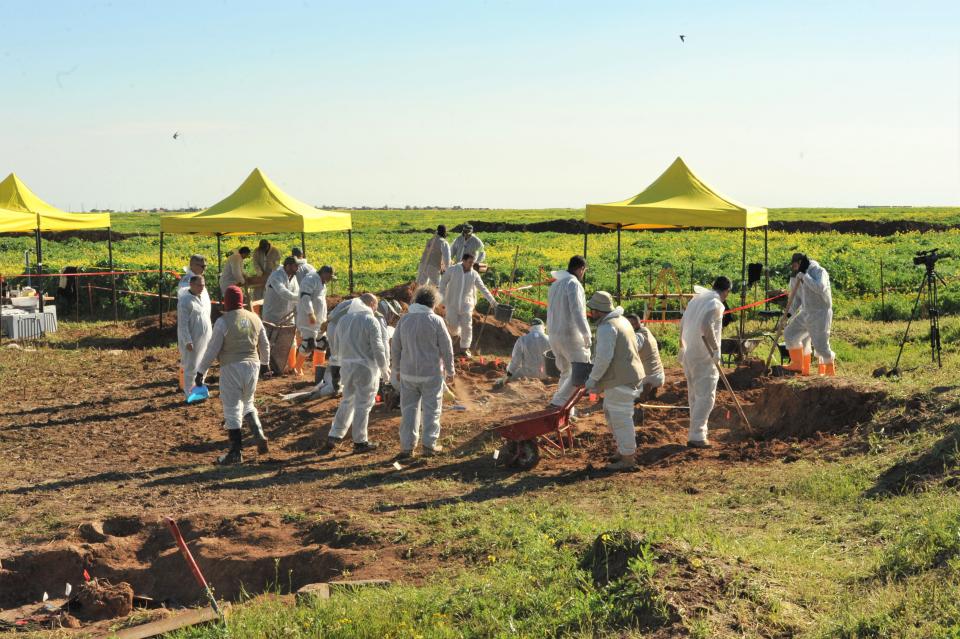Investigative Teams
Head of the Investigative Team
The Investigative Team is headed by a Special Adviser to the Secretary-General. Per the Terms of Reference, the Special Adviser is required to be a person of high moral character and integrity and possess the highest level of professional competence and extensive experience in the conduct of investigations and prosecution of criminal cases. He has a proven record of independence and impartiality and be committed to upholding justice, accountability and human rights and ensuring gender equality.
The Special Adviser develops, adopts and periodically reviews and updates a strategy for the conduct of investigations, determines the Investigative Team’s work plan and puts in place procedures relating to the conduct of its work. Additionally, while avoiding duplication of effort with other relevant United Nations bodies, he works on promoting accountability for acts that may amount to war crimes, crimes against humanity and genocide committed by ISIL throughout the world, and work with survivors, in a manner consistent with relevant national laws, to ensure that their interests in achieving accountability for ISIL are fully recognized.
The Special Adviser is appointed by the Secretary-General, upon consultation with the Government of Iraq, for an initial period of two years, which shall be renewable.

Composition of the Investigative Team: harnessing national and international expertise
Members of the Investigative Team are impartial and experienced professionals, with expertise in the following areas, inter alia: international criminal law; human rights law; international humanitarian law; Iraqi criminal law and procedure; criminal investigations and prosecution; the storage and preservation of evidence for use in criminal proceedings; military affairs; forensics, including, notably, with respect to mass graves, digital forensics, forensic pathology and forensic imagery; witness and victim protection; sexual and gender-based crimes and violence; the rights of women and children; crimes against children; trafficking in persons; and the protection of cultural heritage.
All members of the Investigative Team are appointed by the Special Adviser. Iraqi investigative judges and other criminal experts are appointed by the Special Adviser in consultation with the Government of Iraq. In appointing members of the Investigative Team, due consideration is given to geographic diversity, representation of different legal traditions, gender balance, language skills, in particular in Arabic, and regional expertise.
Such an approach would help to ensure that the Iraqi members of the Investigative Team reflected the diversity of Iraq itself, thereby help to secure support from the broader populace for the Team’s activities and encourage victims and witnesses to come forward.
The Special Adviser and all members of the Investigative Team shall exercise their mandate and discharge their functions in full independence and with the utmost impartiality and shall not seek or accept instructions in regard to the performance of their functions from any government or any external source. They shall maintain the highest standards of efficiency, competence and integrity in the discharge of their functions.
Office of Field Investigations
The Office of Field Investigations (OFI) collects, preserves and assesses evidence of ISIL crimes for the purpose of creating criminal dossiers for use before national courts, within Iraq, but also in third countries at their request. It ensures that international best practices are adhered to, both through the development of Standard Operating Procedures (SOPs) and other guidlines, for adoption by the Special Adviser, as necessary, and also through the application of such best practices in the investigative work it conducts. The section Chief ensures the effective direction and management of all such activities, with the support of the Heads of the Field Investigations Units (FIUs) and the Sexual and Gender-Based Violence and Crimes Against Children Unit (SGBVCU), in accordance with UNITAD’s mandate, terms of reference and Investigation Strategy, pursuant to the vision, guidance and direction of the Special Adviser.
Office of Evidence Management
The core function of the Office of Analysis and Evidence (OAE) is to collect, store, preserve and prepare analyses for its stakeholders, most notably the Government of Iraq and third-party countries on their request. It focuses on delivering well-managed, trustworthy, reliable and accessible information and evidence to the highest standard possible. To effectively collect evidence pertaining to acts that may amount to war crimes, crimes against humanity and genocide committed by ISIL in Iraq, including by conducting interviews, taking witness testimony and statements, receiving information and documentation and acquiring forensic material. All such activities, as well as the different components of the OAE are guided and managed by the Chief of section in accordance with UNITAD’s mandate, terms of reference, pursuant to the vision, guidance and direction of the Special Adviser.

Witness Protection Unit
UNITAD has adopted a victim-centered approach in its activities in line with the witness protection strategy, and international practices. One of the guiding principles in this regard is that no further harm is caused to witnesses as part of the collection of testimonial evidence. The Investigative Team has developed working practices and methods, and continues to update this further, for interviewing victims of conflict related sexual and gender-based violence, and violence against children. A significant amount of resources is dedicated to that end.
In coordination with the competent authorities, civil society organizations and in all its contacts with witnesses, UNITAD takes into account the needs of a witnesses in a holistic manner where adequate measures are incorporated to protect the safety, physical and psychological well-being, confidentiality and dignity of victims and witnesses, respect, appropriate assistance, sensitivity to special needs, consent and right to information. The Investigative Team operates to the highest levels of confidentiality in order to limit the potential exposure of witnesses to identified threats.
In line with ensuring best practices UNITAD has also engaged to collaborate with different partners to support the work of the investigative team through a series of activities including training of investigators on best practices for working with survivors of severe trauma, provision of specialist assessment as needed, and gathering of mental health data.
Under the Terms of Reference, the Government of Iraq is responsible for the protection of victims and witnesses and all those who come into contact with the Investigative Team. The Government of Iraq has made an undertaking that no person shall as a result of such contact suffer harassment, threats, acts of intimidation, ill-treatment or reprisals. The Investigative Team explores ways and methods together with the competent Iraqi authorities for implementing protection measures adapted to the Iraqi context.
To learn more about the composition of the Investigative Team and its different sections please see the Terms of Reference.

